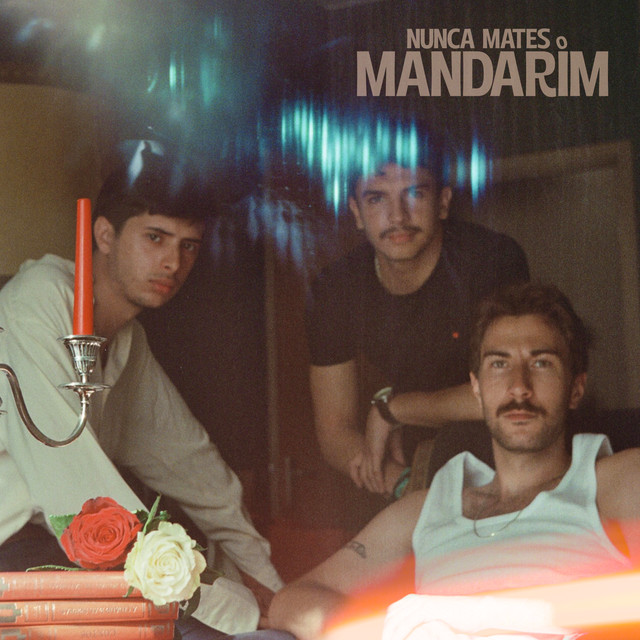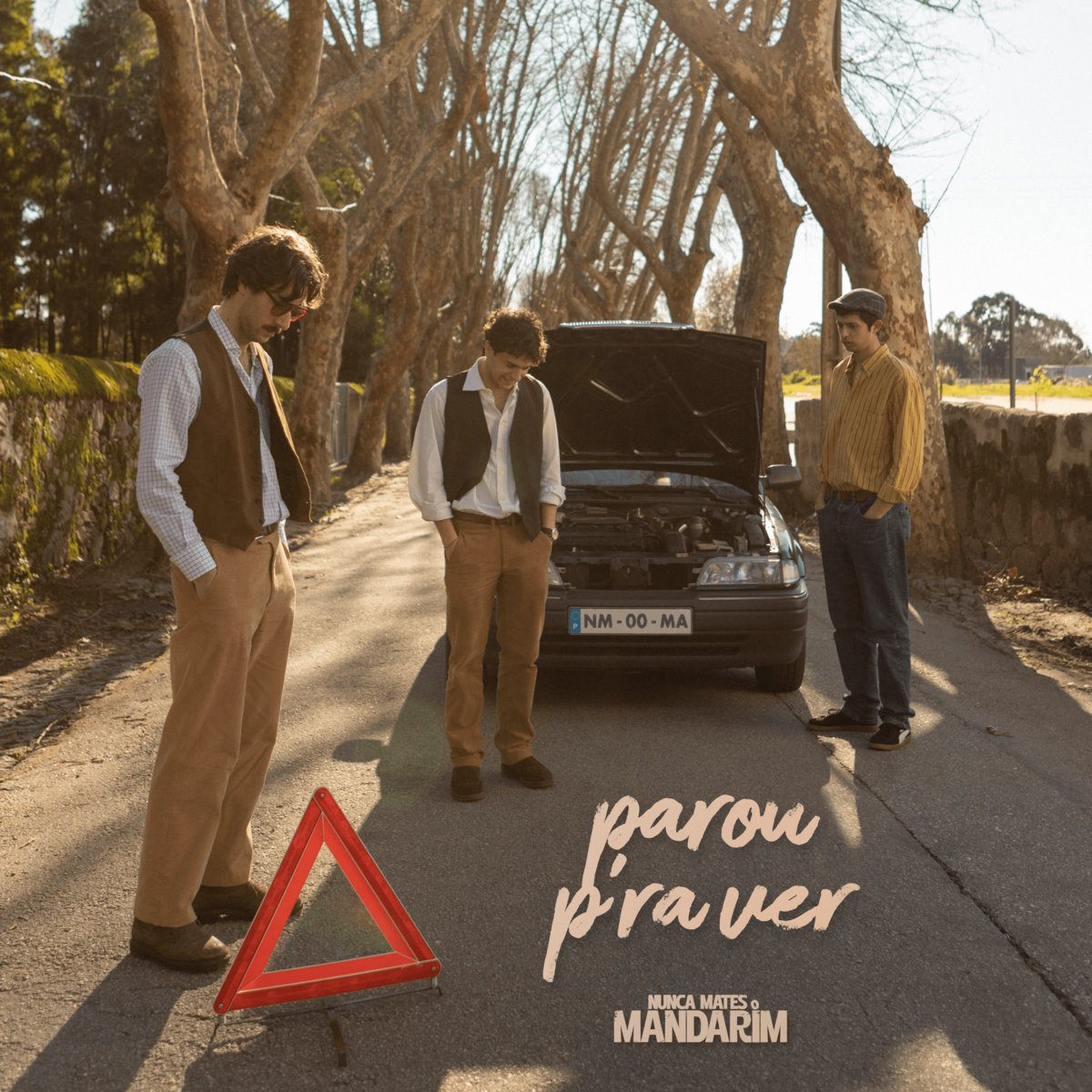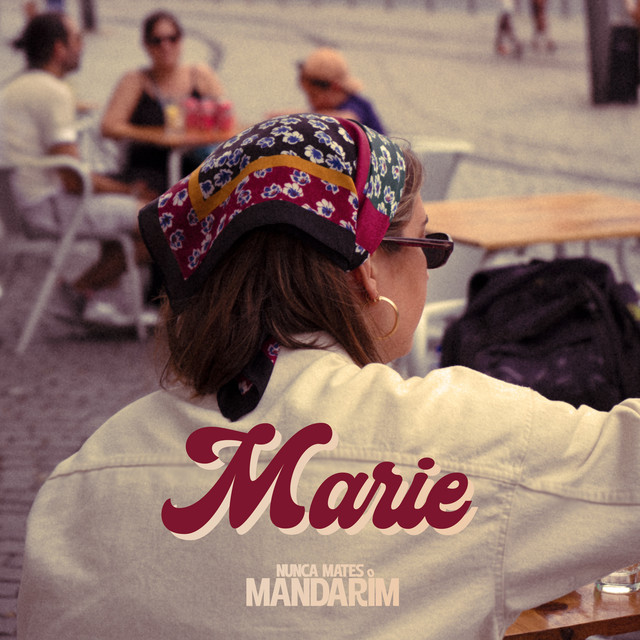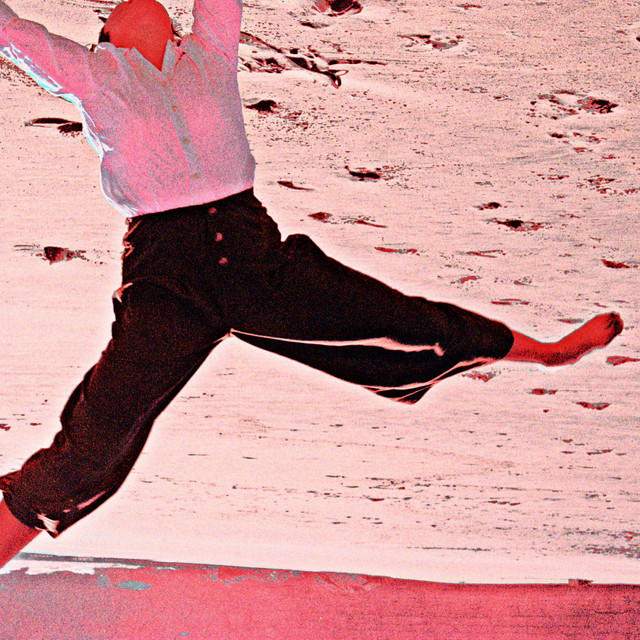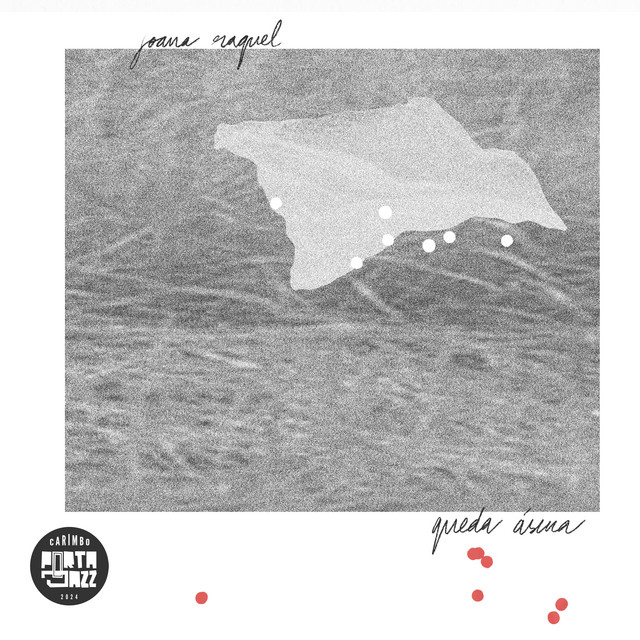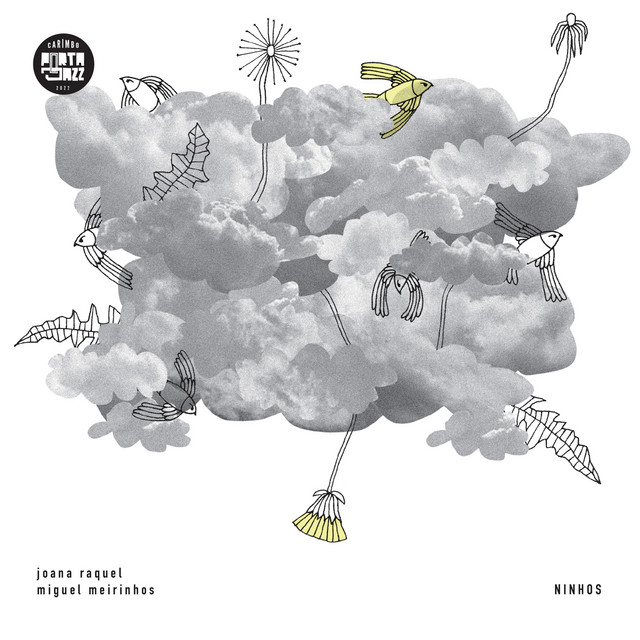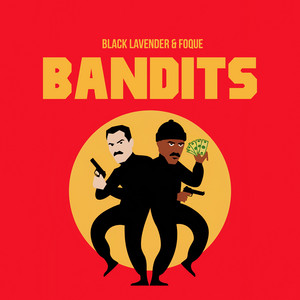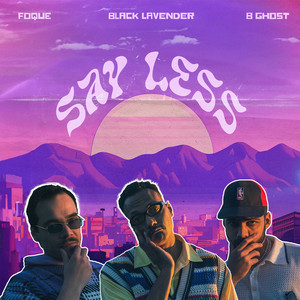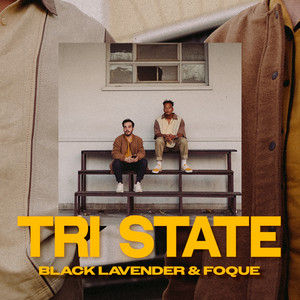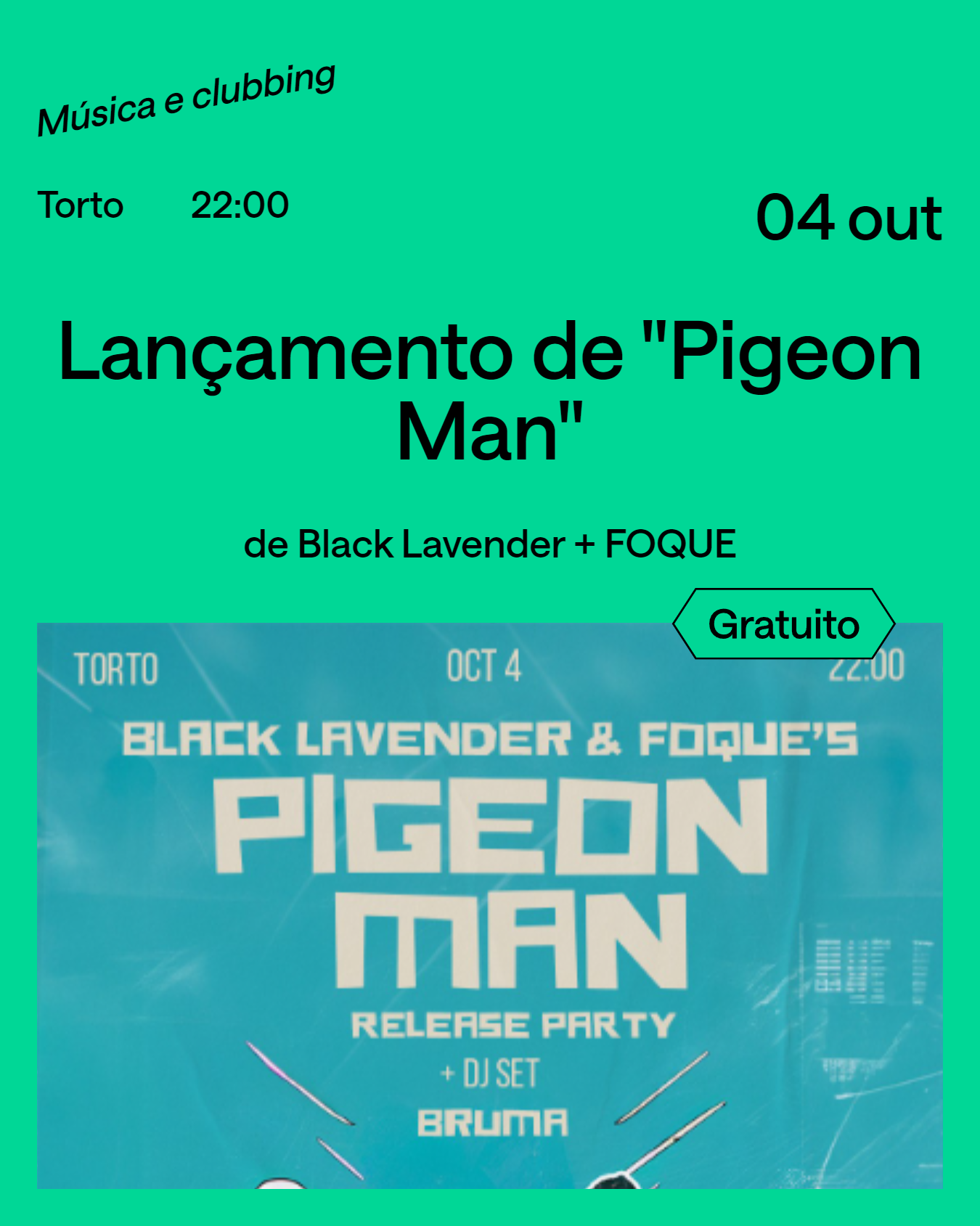EN

These are new projects that have little in common other than having formed after the pandemic. Between indie, hip hop, jazz and rock, we find out what the people who work to give us music get up to. We chose four, but there could have been forty. To read, and then to listen to: all are available on streaming, although they are grateful for more physical support, usually on sale at the concerts they give around town.
Nunca Mates o Mandarim
Esperei-te nas Virtudes e fiquei a ver o mar
Procurei-te nos Leões a ver navios a passar
Só na Cordoaria é que um bêbado a mijar
Me disse que talvez um dia te viesse a beijar
– in “Croché”
They call themselves ‘three people from Porto, between the poetic and the mundane, with plenty of time to burn’. They owe their name to Eça de Queiroz: it's one of the last lines in the novel The Mandarin, a tale about the dangers of greed. This was a theme present in the lyrics of João Amorim (lead singer, who also has a leg up on the guitar), of course, but the main purpose of the name was to emphasise Portugueseness. After all, the band was going to be called ‘Língua Morta’ (Dead Tongue), due to the despair the musicians felt at seeing so little music sung in their language.
But one more coincidence: as with Eça, there's an attachment to the city where they were born - Porto. In addition to the walking tour that are the lyrics of ‘Croché’, where there is a fondness for the conductivity of Porto's streets for wandering, there is a criticism that they launch in unison: ‘There are few venues that programme live concerts, very few. If we hadn't organised concerts in places where we set up ourselves, we'd have done almost nothing,’ says Manuel Dinis (guitar and vocals).
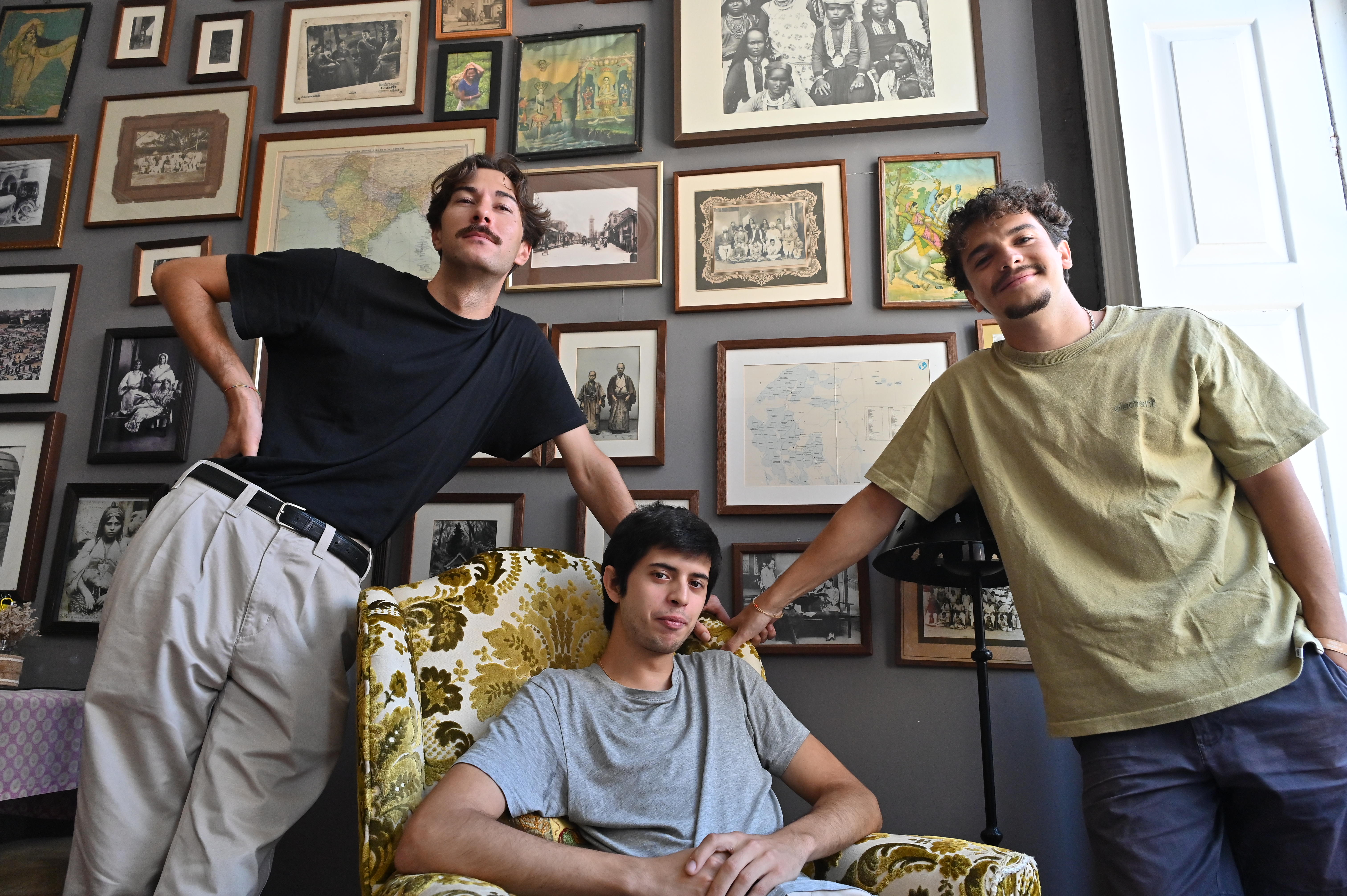
© Rui Meireles
One of the places they proposed playing was Rota do Chá, where we interviewed them. As well as the orientalism that seems to fit Nunca Mates o Mandarim like a glove, there's an indolence in those gardens that invites you to indie in rhythm. After the pandemic, in their eagerness to bring out things cooked in times of confinement, they set out to play in this venue that was not used to hosting concerts. ‘At the time, we had to buy all the equipment and amplifiers to be able to play here,’ recalls João, ’but shortly afterwards we had a wedding and that paid for almost all the investment.’
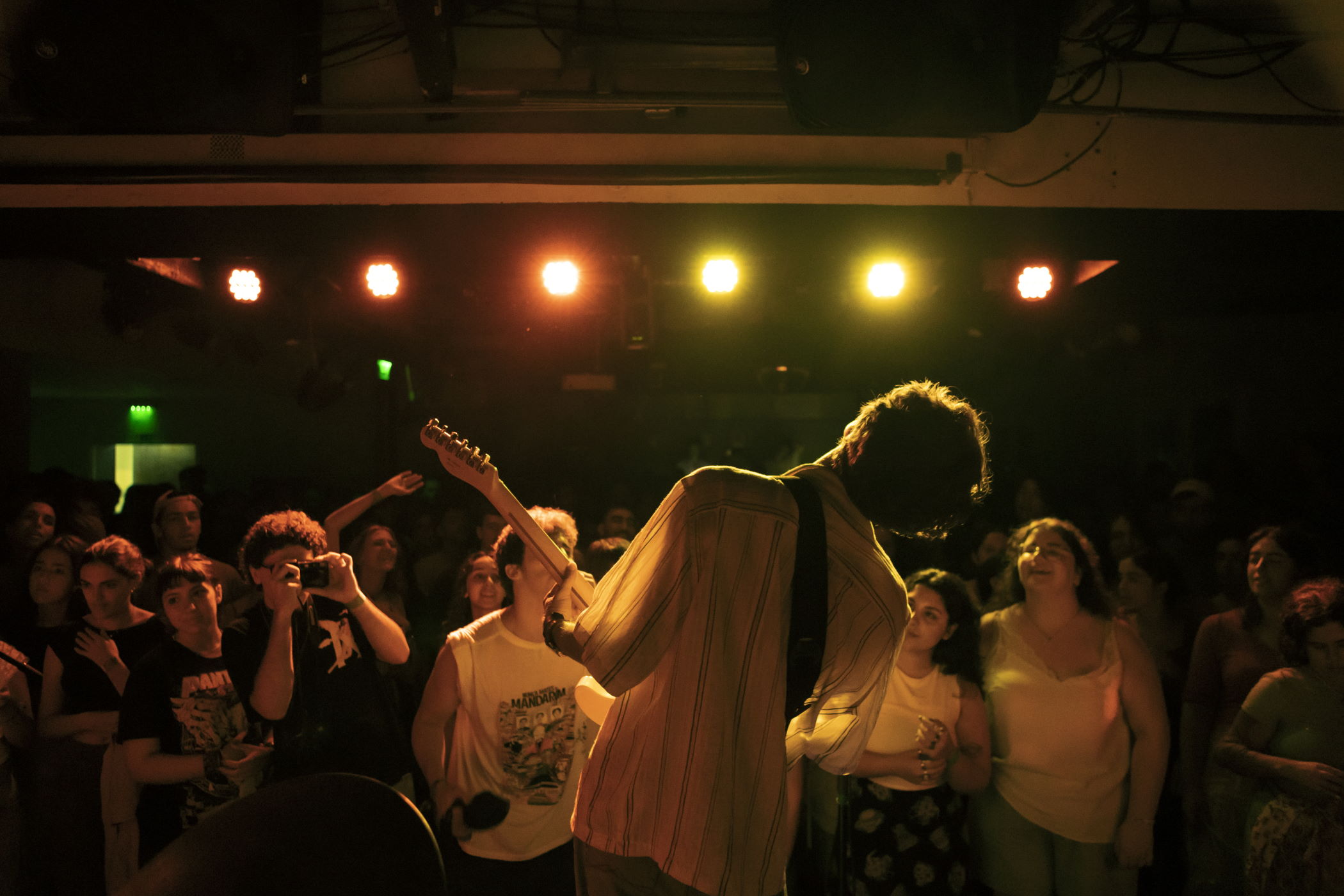
© Ana Margarida Calheiros
Away from the weddings, they went on a solid tour this summer, travelling all over the country. According to João Campello (bass and vocals), "it was really good, I got to know places like Pombal de Ansiães, places I would never have gone to on my own", and also "I learned how to deal with playing in places with little space, or where there isn't the exact equipment and you have to find a way to play in that configuration".
Playing at parties in places where few people knew them, working on the EP 'Nunca Mates o Mandarim Cantam os Clássicos' - covers of Portuguese national anthems, from Carlos Paião to Ruth Marlene, which the band themselves describe as "a collection of indie-pop-rock arrangements that revisit the brilliance of ballet" - was a great help. Campello admits the trick worked. We play Pó de Arroz and everyone who doesn't know us knows it by heart. They sing along and know what we're doing, but they also thought we were a Diapasão tribute band.
But the tour wasn't just about the more secluded venues, as they sold out Maus Hábitos and played Musicbox in Lisbon. The band played at the most recent edition of Feira do Livro, and their first album isn't even out yet. Although Spotify automatically categorises releases with more than six tracks as albums, they consider that so far they have only published EPs. The first album is still in the design phase, and the band believes that the process is ‘more or less halfway through’. The band's identity, on the other hand, seems to have fully bloomed.
Marquise
Boy do charme não digas que não é unânime esse ato
Asfixia nessa tua monogamia com os ideais
Segue lá os liberais voltaremos ao tempo dos canibais
Morgadinha, onde vais?
– in “Nave”
Their bio on some platforms states that ‘Marquise wanted to be a balcony in Porto, but they blocked off the open air’ and so ‘armed with a throat, drumsticks and picks, they fiercely attack the walls to make themselves known to the world’. The text, by comrade Daniel Catarino from the Saliva Diva label, is much appreciated by the band, but they recognise it as a post-facto creative defence: in fact, the name Marquise came up shortly before their first live gig - after all, they had to be announced somehow. So it became a reference to the place where they rehearse, in Praça do Marquês. A simple and straightforward origin that suits a band that seems to flow naturally through everything.
When we sat down to talk to the alliterative Mafalda (Rodrigues, vocals), Miguel (Pereira, guitar), Miguel (Azevedo, bass) and Matias (Ferreira, drums), they had just returned from playing in Paredes de Coura, on the stage that animated the town centre as part of the festival. Miguel Pereira talks about how he ‘didn't expect so many people’ to come to see them and how, apart from the ‘immense energy’ that this transmits to those on stage, they were surprised to see so many people singing with them. ‘It's one thing for them to sing with us at concerts we give in Porto, but to go out on this circuit and still see people singing was a surprise.’
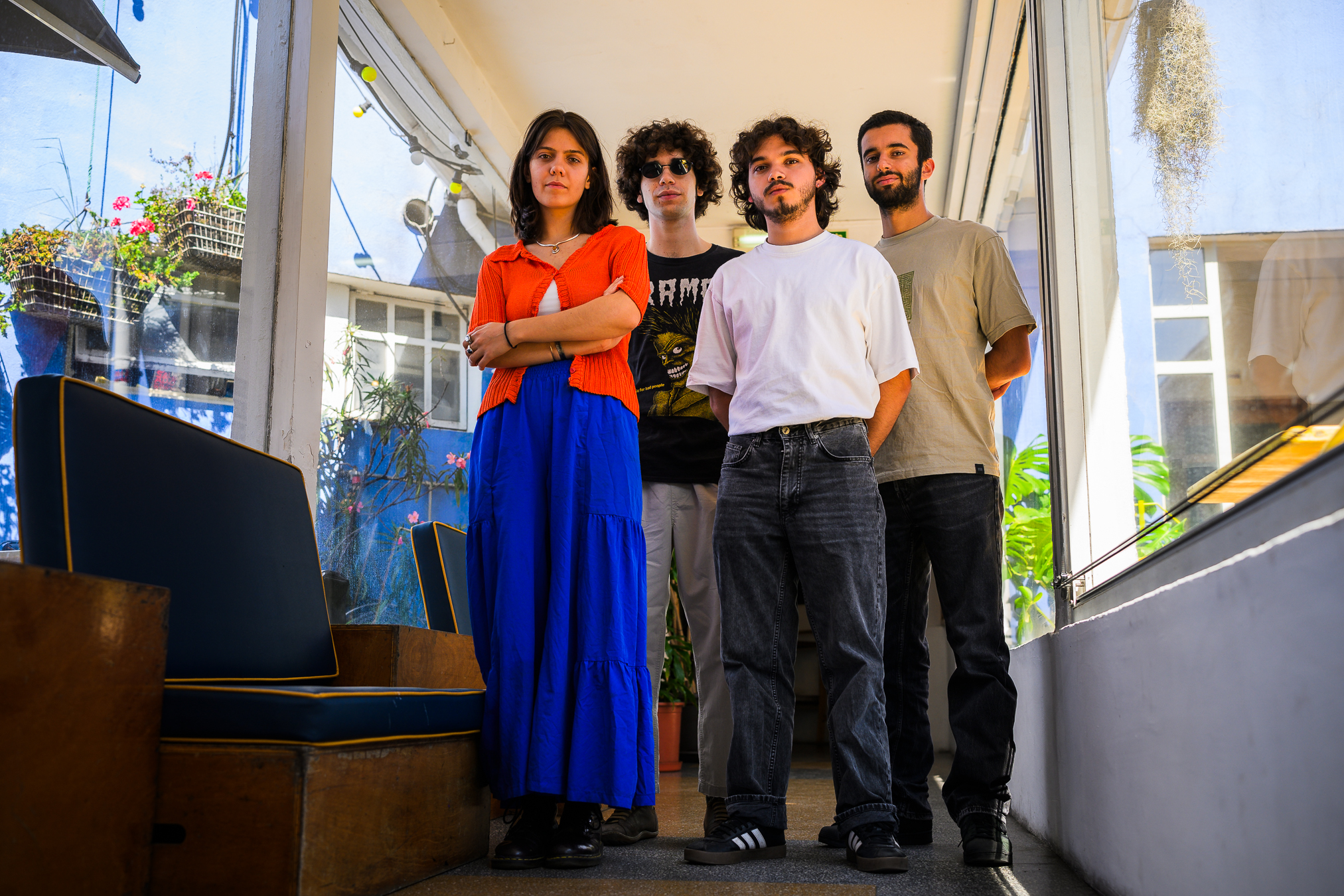
© Nuno Miguel Coelho
To date, this has been the concert with the biggest crowd. The journey to get there is very organic, as they socialise in similar circles. The ‘miguéis’ and Matias had already played together, in ‘laboratory experiments’, but the founding moment happened at the Metro station. While Miguel Pereira was changing lines at Trindade, on his way to another rehearsal at Marquês, he bumped into Mafalda and came up with the idea: ‘You sing well. Why don't you sing with us sometime?’ From then on, they began a semi-closed circuit of playing at student union parties and small gigs organised by friends.
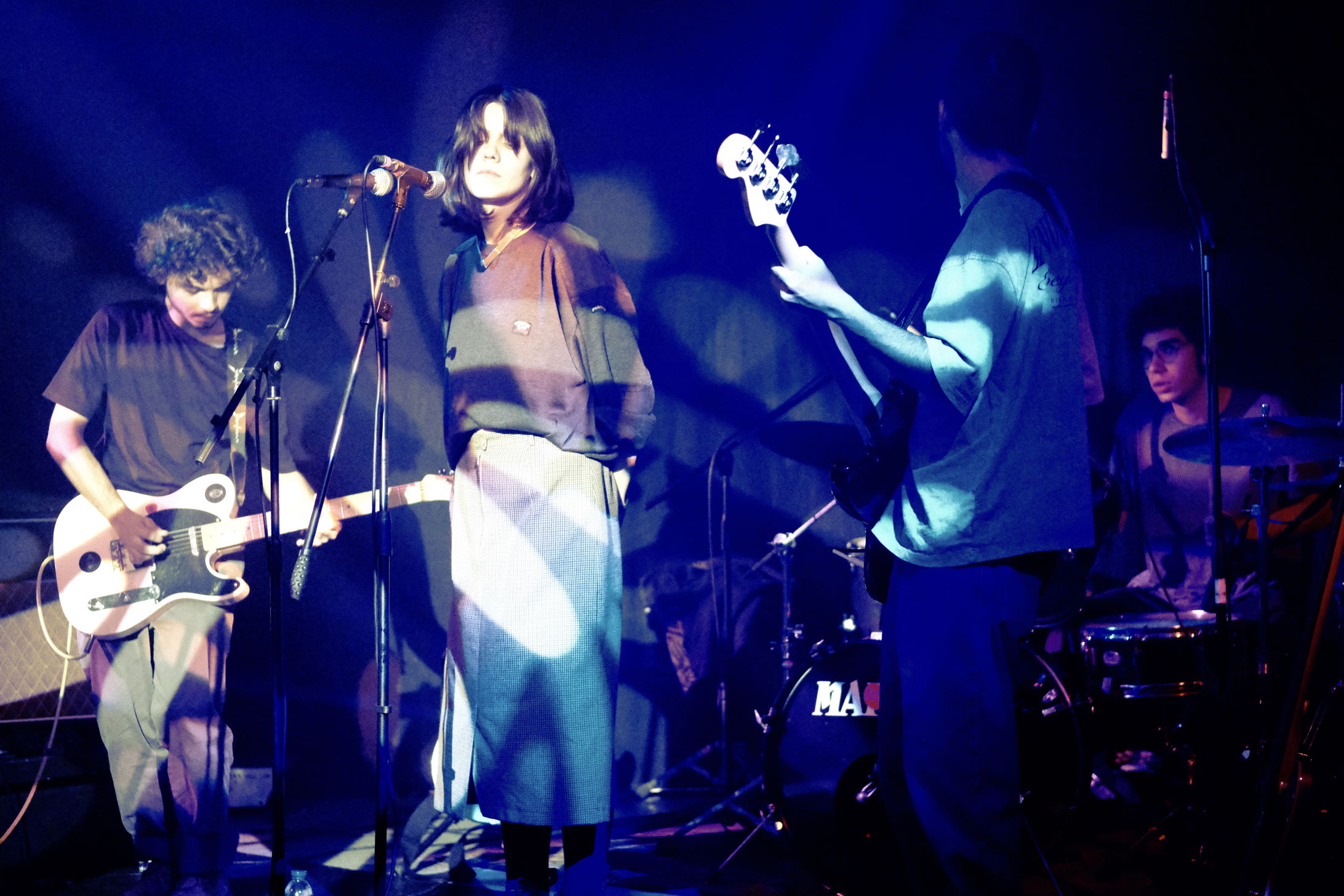
© Francisco Ferreira
And playing what? Marquise reject genres that are too closed off, as they say they have too many influences to lock themselves into a label. But even so, you can see a hint of grunge that is harmonised with an indie rock rhythm. All this is underpinned by Mafalda's mellifluous voice, which Matias recognises as an asset to the band: ‘We were lucky enough to find someone who writes well in Portuguese and can sing well in Portuguese.’
So the choice of mother tongue wasn't necessarily a heated internal debate, it was something that emerged naturally in the composition of the songs. As was the case with the recording of their first EP - after a concert at the Faculty of Architecture, the sound technicians from that event, who were setting up Estúdios Cedofeita, came to suggest recording their first work. In this whole line of happy coincidences, only one point creates friction: the band does its own booking, and notices some difficulty in finding venues in which to perform.
Even so, the contact they've had with the public has informed the greater work: on the verge of releasing their first album, they've been paying attention to what they feel works and what they feel needs to be perfected. The promise is there - it will be out by the end of the year, if it goes well.
Joana Raquel
Se estiver na bruma
E não puder olhar melhor
Procuro a fuga desse fumo
Em meu redor
– in “Tanto Ar”
Unlike the other projects, in just two years Joana Raquel is already on her second album - Queda Áscua, which followed Ninhos. The secret lies in the great driving force behind jazz in the city, the Porta-Jazz Association, which Joana already frequented regularly, but which she joined as part of the team in February. ‘Porta-Jazz was a must in the city for a jazz musician, and it made perfect sense for me to release my music with them,’ she recalls.
Joana is from Ançã, in Coimbra, where her first contact with creating music took place in the local philharmonic band, lending her breath to an oboe. The next step came in Coimbra, when she enrolled on a professional jazz course: ‘I think my life is a bit of a fluke, because I don't plan much, but things happen. I didn't know much about jazz music until I went on the course and that's where I learnt everything.’ It was also the place where he learnt to separate himself from his oboe, an instrument that ‘doesn't really fit in’ with the genre.
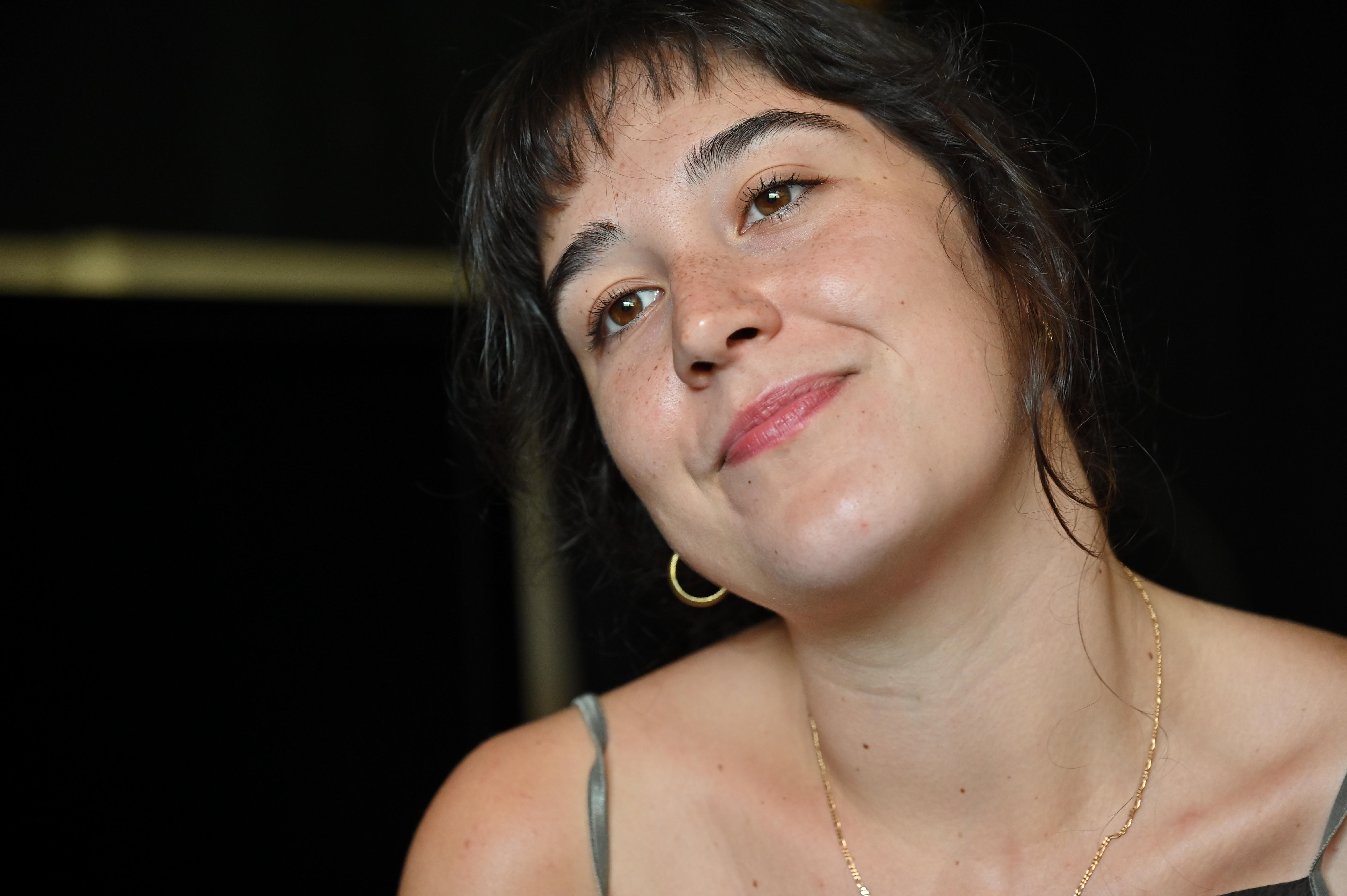
© Rui Meireles
She began singing informally in student projects throughout his degree, and continued to do so when he moved to Porto to study at ESMAE - Escola Superior da Música e Artes do Espetáculo. The year she finished her degree coincided with lockdown. ‘I was finally in a place in my life where nobody was forcing me to do anything. Suddenly I had no deadlines to meet, no work to hand in and no songs to learn for a school exam. That was very liberating for me.’
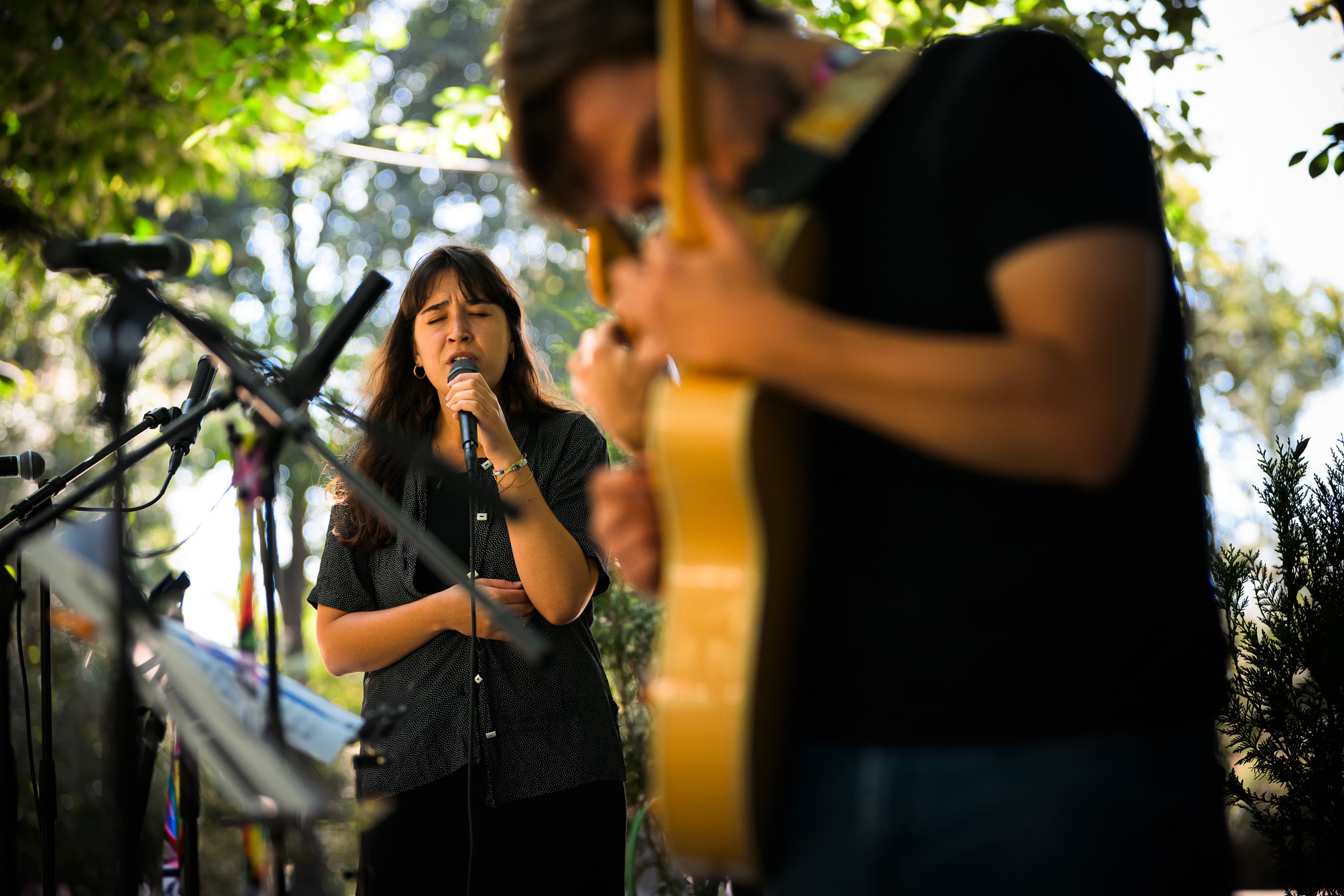
© Nuno Miguel Coelho
Free time became associated with the freedom of not having to conform to the norms implicit in teaching, and as she saw himself ‘doing something further away from that’, she started ‘doing the exercise’ of writing his own music and lyrics. In the Porta-Jazz ecosystem she found support for her first disc in pianist Miguel Meirinhos: ‘I have a lot of impulses to start things, but then I have trouble finishing, and he has trouble starting, so it worked out so well!’
After this first Ninhos, with a traditional quartet of piano, double bass, drums and voice, Queda Áscua represents an even greater escape into freedom. ‘Here I mixed my influences: when I was writing, I was listening to music outside of jazz, more songs, so I tried to do something that starts with a theme, and then goes into improvisation.’
She admits to being passionate about the ‘more elastic, more unpredictable side of music’, but she also recognises the fear of doing it on stage: ‘Being on stage taking on work in my own name is sensitive, because it's a very personal thing, I always go with a bit of fear. But the music I like to play the most is my own, so it's all good.’
Black Lavender + FOQUE
The way I talk about you, you the baddest one
The way you talk about me, I’m the savage one
You always saw right through me
I just had to run
– in “Say Less”
Theyare two, but count as one: FOQUE is a producer from Porto, and Black Lavender is an American singer who moved here in 2022. Their story begins with ghosting. FOQUE (Luís Leitão's nom de guerre) was already following Black Lavender's work, and during confinement sent him several messages with beat proposals for possible collaborations. Black Lavender, who was confined to Madrid at the time, read them but didn't reply.
It wasn't out of coldness, but rather a need on Black Lavender's part to conduct creative processes in person. The opportunity arose when Black Lavender moved permanently to Porto - the city where he had been spending all his holidays for some years. That's where the meeting took place, as well as their first studio session - the duo became inseparable until today, the moment when they're already in the final stages of the album they've been cooking up. Before Porto, in the aftermath of the pandemic, their paths seemed perpendicular, inching ever closer to intersecting.
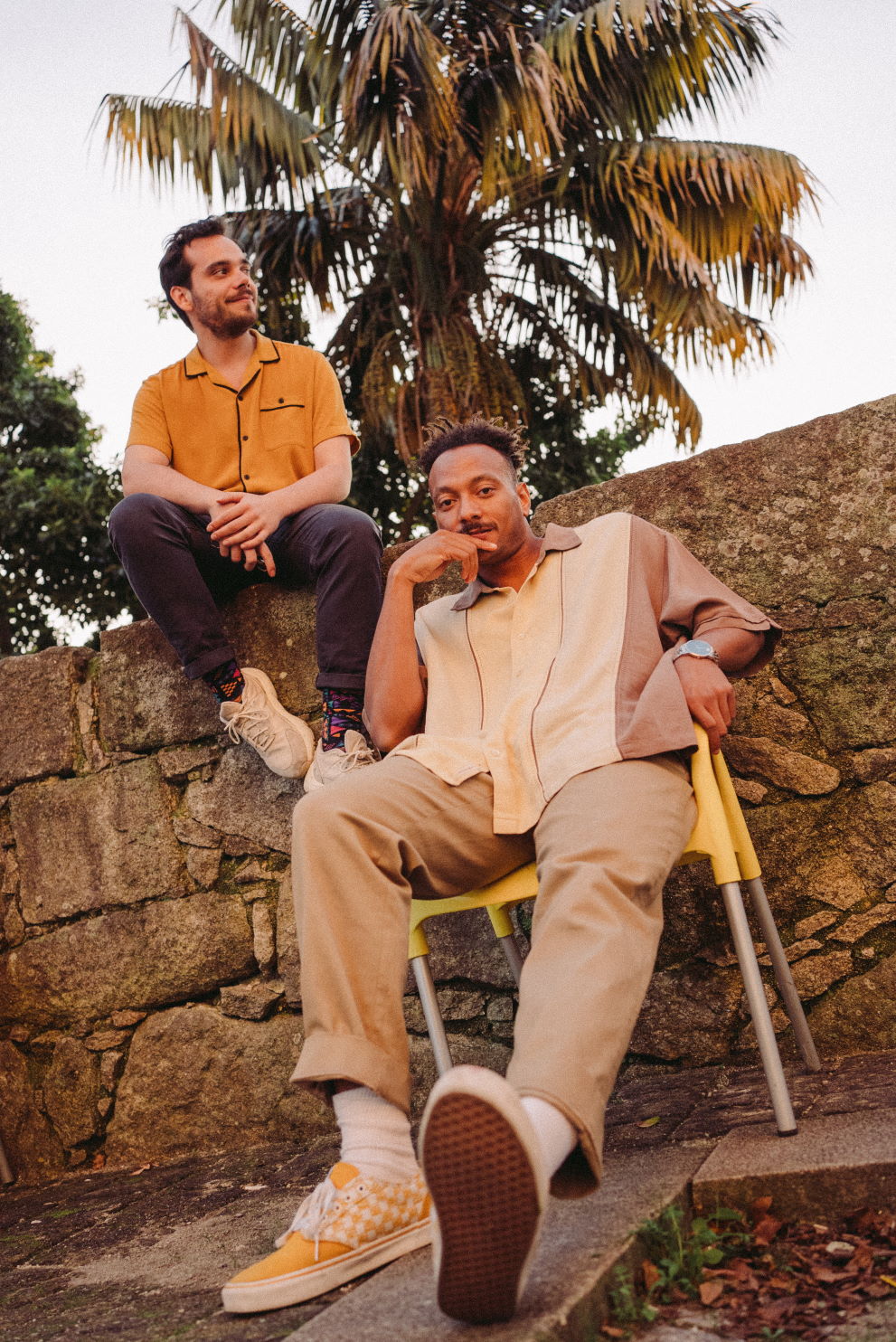
© Early July
Black Lavender, originally from the suburbs of Philadelphia, grew up with the giants he found in his father's record collection, such as Marvin Gaye and Otis Redding. ‘I rap out of necessity, because my voice is still a work in progress,’ confesses the singer, adding that what drives his style is something like “funk with hip hop lyrics”. Driven by the stories his Spanish neighbours told him about Madrid's underground scene, he moved to the capital of the neighbouring country in 2012, where he spent a decade on the jam scene with his band The Othahood. After the pandemic, the band members moved on to different countries, and Black Lavender decided to move to the city he already visited every year, and for which he had a special appreciation.
FOQUE began by studying theatre, although he had always been active in rock and progressive music projects. After three years studying theatre in Porto, he moved to Lisbon and decided to change direction: while staying in the theatre field, he worked on composing and arranging music for plays, while also studying music production on his own. His stage name, FOQUE, came about when he decided to take on a focus area in his work: this is how he signs, for example, his solo album ‘Ato isolado’, and his production roles for artists such as DAMA or Special ADZ, and compositions for soundtracks. But Black Lavender anticipates problems: ‘It's going to be hard to say your name live when we're interviewed on American talk shows.’
The duo's first album is almost out, but there are already two singles and a song ‘used to test methodologies and pave the way for singles’. There is great tonal diversity between the three: ‘Tri State’, the pre-album test, is based on warm beats for a relaxed flow; ‘Say Less’ (also in collaboration with B Ghost, a Brazilian based in Porto) is a vibrant song about the end of a relationship; and the most recent single, ‘Bandits’, refers to a groove typical of ‘blaxpoitation films, an environment that interests me immensely’, according to Black Lavender. All of them are clues to the album that will be released on 4 October at Torto.
by Ricardo Alves
Share
FB
X
WA
LINK



